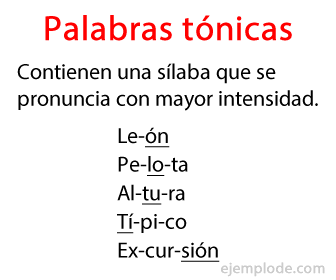Importance of Urban Ecology
Miscellanea / / October 06, 2023

Biology Teacher Title
Taking advantage of free spaces in cities, whether in common public areas or those belonging to the boundaries of houses and apartments, seems to be an idea simplistic with a medieval touch, however, the implementation of this concept has proven to have a multidimensional extension in terms of scope, benefits and intentions that allow us to consolidate, along with all other strategies that can be implemented to improve human interactions with their immediate environment, by What talking about urban ecology and the ecosystem analysis that it facilitates within the environments most intervened by humanity, implies: 1) the cultural impact on the around; 2) the economic potential of the strategies that could be implemented to improve all the interacting elements within the urban ecosystem; 3) the potential significance that urban conditions have on the mental health of inhabitants; 4) the social empowerment that can be promoted; and 5) the solutions that can be provided to the various environmental problems that we have caused with our development, starting from the recovery of the areas closest to the majority of people throughout the planet.
Citizen responsibility
The intervention of urban ecology, in terms of the cultural transformation it promotes, through the development of healthier and more responsible interaction dynamics with the environment, It is presented as the main axis on which the possibility of understanding the nature of the social phenomena that impact the environment is based, and how this in turn has influenced in the development of the identity of the inhabitants of a given city, in order to raise awareness among the population about the problems and solutions that exist within these dynamics.
The achievement of such a purpose leads to the need to adopt mechanisms that facilitate environmental education at all levels of the society addressed, so urban ecology requires as a first resource the assistance of the educational system in the different modalities in which it may be present, in order to promote the reconnection of people with the natural settings that can be linked to their daily lives, a fact that allows the strengthening of the resilience of the communities, as they are also better disposed and prepared to face environmental challenges that could pose a challenge at a given time, such as what occurs in the face of natural disasters and major pollution problems. environmental.
The planning of green areas integrated into the community, which offer spaces for leisure and recreation, arranged at the service of citizens aware of their care and maintenance, allows to guarantee the continuity of a harmonious relationship between both parties, reflected in a notable improvement in the quality of life through the possibility of developing activities aimed at reducing stress and improving physical and mental health, therefore, urban ecology increasingly incorporates the necessary urban planning in order to develop cities and urban planning that are increasingly friendly to the environment and sensitive to the true needs of the people. people.
From concrete to sustainability
The economic possibilities that derive from this discipline are as broad as human creativity itself, it is enough just to be able to stick to the fact that Any type of activity to be carried out, whether community or individual, must be oriented towards the maximum possible reduction of contaminating factors. direct or secondary to the activity itself, such as in the development of an organic garden whose harvested products are for own consumption or rather for marketing to third parties, have been obtained without the intervention of agrotoxins or the generation of polluting waste that rather increases the problems environmental.
This conscious use of the productive potential within communities opens the doors to the development of sustainable primary systems with which to improve the dynamics within urban communities, but it also makes viable the sustainability of the rest of the relationships with the environment, guiding towards the generation of environmental management policies. waste and use of resources appropriate to each particular scenario, under the banner of reduction, reuse and recycling of everything possible and necessary, a premise that stimulates in citizens and companies the desire for technological innovation towards the use of sustainable energy sources and the development of low-impact production models, adoption of more environmentally friendly technologies that increase energy efficiency, the installation of water collection and treatment systems, the adoption of means of less polluting public and private transportation and the search for food security for residents of urban areas through the consumption of fresher and healthier foods produced locally.
Environmental contributions
A well-organized and planned practice can even imply the possibility of recovering the native plant species existing in the area, prior to the development of the city and, with this, also the rescue of the fauna belonging to the habitat from which it had been dispossessed, ensuring the establishment of a more balanced coexistence that takes into account the maintenance of the necessary biodiversity in the environment, from which benefits are obtained such as better management and control of potential pests that affect cities, among which insects and rodents that in turn serve as transmission vectors for multiple diseases, which also allows the establishment of more efficient measures for the prevention of diseases.
The increase in the quality of air, soil and water in urban environments, thanks to the reduction of their polluting factors by the measures promoted by urban ecology, potentially represents one of the most promising alternatives for reversing the negative actions that have triggered growing climate change, being that It is precisely from cities that the largest amount of waste originates that impacts all other regions of the planet, as for example occurs with the millions of tons of plastic discarded by a consumption model that had not thought at all about ecological issues, before having covered almost everything that is produced, marketed and distributed throughout and width of the planet.
References
Angeletto, F. et all. (2015). Urban ecology: The interdisciplinary science of the city planet. Development in Questão, 13(32), 6-20.Cubino, J. P., Subirós, J. V., & Lozano, C. b. (2015). Plant biodiversity and the city: approaches from urban ecology. Bulletin of the Association of Spanish Geographers.
Park, R. (1999). The city and other essays in urban ecology. Rowan, Barcelona.
Romero, H., Toledo, X., Órdenes, F., & Vásquez, A. (2001). Urban ecology and sustainable environmental management of Chilean intermediate cities. Environment and development, 17(4), 45-51.
Write a comment
Contribute your comment to add value, correct or debate the topic.Privacy: a) your data will not be shared with anyone; b) your email will not be published; c) to avoid misuse, all messages are moderated.



